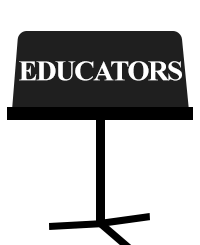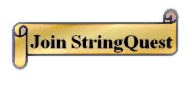What is more important to you?
Doing better than your competition or challenging yourself to do your best?
How is True Success Achieved?

Author’s Introduction
As a professional musician and teacher, I have encountered this question in personal experiences consistently over decades. With all confidence, I share that the value of the outlook discussed below, will be the most important part of your learning experience – on your Quest for Success.
You may be a teacher who has taught for a lifetime, or a student who is first starting out. You may be a brilliant scholar, or an experienced classical musician. You may be the parent of a budding teenager who will grow to become an adult, parent, or possibly a teacher. Everyone can gain perspective on how to appraise his or her own personal success at any level, including this author.
Most textbooks are subjected to painstaking editing processes. Stating things in a textbook-correct fashion, seeking to present concepts in precise and clear ways, is always the goal. On these pages, I share this important quest for precision and clarity, but in addition, you may notice a more personal style in which the material is presented. I wish to give the reader food for thought on a creative level. You will notice the use of expressions, analogies, friendly concept-characters, word play, and on occasion, I will share a fond memory or even a joke or two.
It is important to know that string instruments existed before there were written instructions on how to play them. Over centuries, the dedicated love of musicians for their instruments has encouraged discovery. Master composers, players, and teachers gathered hands-on knowledge and then experimented with and improved their know-how. This traditional wisdom continues to evolve and has been handed down from generation to generation. Let us continue the tradition.
Maintain realistic expectations and recognize that playing a musical instrument is unlike any other activity in the sense, that it is much more than simply knowing what to do. Once you have acquired this knowledge, your goal is to apply it to controlled, polished, physical action. Studying and improving how knowledge is applied to and then guides physical action, requires patient and focused repetition – practice! It takes training to acquire knowledge of performance techniques and then be able to successfully apply this learned wisdom to your own performances.


Learning Focus Practice Tutorial Weight in Motion Gravity Leverage Balance
Potential and Kinetic Energy The R’s of Remembering Practice Purpose Music Staff Evolution
Music Clef Origins Scroll History Peg Information Bowed String Instrument History
Friction Bass Tuning Mechanism Modern-Day Violin Family Bridges Through the Ages
Potential and Kinetic Energy The R’s of Remembering Practice Purpose Music Staff Evolution
Music Clef Origins Scroll History Peg Information Bowed String Instrument History
Friction Bass Tuning Mechanism Modern-Day Violin Family Bridges Through the Ages




